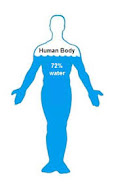Robotics ppt
Robotics
What is a Robot ??
A re-programmable, multifunction, automatic industrial machine designed to replace human in hazardous work. It can be used as :
- An automatic machine sweeper
- An automatic car for a child to play with
- It is also used as in space, military, and many more.
What is Robotics need ?
Robotics is science of designing or building an application of robots. Simply, Robotics may be defines as “The study of Robots”. The aim of robotics is to design an efficient robot.
Why is robotics needed ??
Robotics is needed because:
- Speed
- Can work in hazardous\dangerous temperatures
- Can do repetitive task
- Can work with accuracy
Robotic History
- First use of the word “robotics”
- Three laws of Robotics
- The first robot “unimate”
First use of the word “robotics”
The word “robotics”, used to describe this field of study, was coined accidentally by the Russian-born, American scientist and science fiction writer, Isaac Asimov(1920-1992) in 1940s.
Three Laws of Robotics
- First law : A robot may not injure humanity, through inaction, allow human being to come to harm, unless this would violate a higher order law.
- Second law : A robot must obey orders given it by human beings, except where such orders would conflict with a higher order law.
- Third law : A robot must protect its own existence as long as such protection does not conflict with a higher order law
The first robot “unimate”
Robotic Technology
Most industrial robots have at least the following five parts:
- Sensors
- Effectors
- Actuators
- Controllers
- Arms
Types of robots
Mobile Robots
Mobile Robots are of two types:
- Rolling Robots
Rolling robots have wheels to move around. They can quickly and easily search. They are only use in flat area.
- Walking Robots
Robots on legs are usually brought in when the terrain is rocky. Most robots have at least 4 legs; many have 6 or 8 legs.
Stationary Robots
Robots are not only used to explore area or imitate a human being. Most robots perform repeating task without ever moving an inch. Most robots are working in industry settings and are stationary.
Autonomous Robots
Autonomous robots are self supporting or in other words self contained. In a way they rely on their own ‘brains’.
Remote-Controllers Robots
A persons can guide a robot by remote control. A persons can perform difficult and usually dangerous task without being at the spot where the tasks are performed.
Virtual Robots
- Virtual robots don’t exits in real life.
- Virtual robots are just programs, building blocks of software inside of computer.
Advantages
- Going to far away planets.
- Going far down into the unknown waters and mines.
- Giving us information that humans can’t get.
- Working at places 24/7 without salary and food.
- They don’t get bored.
- They can perform tasks fasters than humans and much more consistently and accurately.
Disadvantages
- People can lose jobs in factories.
- It need supply of power
- It need maintenance to keep it running
- It is more money to make or buy a robots















sir please mera ko ye ppt mera ko mera gmail pe send kar sekte ho kyo ki mera ko kal hi ye ppt college main dena hai or mera pe time hi hai please send me
ReplyDeleteThis comment has been removed by the author.
ReplyDeleteSir ye mujhe ppt mil sakta hai kya plzz send me on email sir plzzz yadavashutoshkumar248@gmail.com
ReplyDeletehloo sir please send me this in my gmail
ReplyDelete